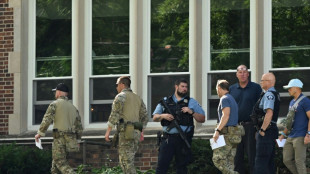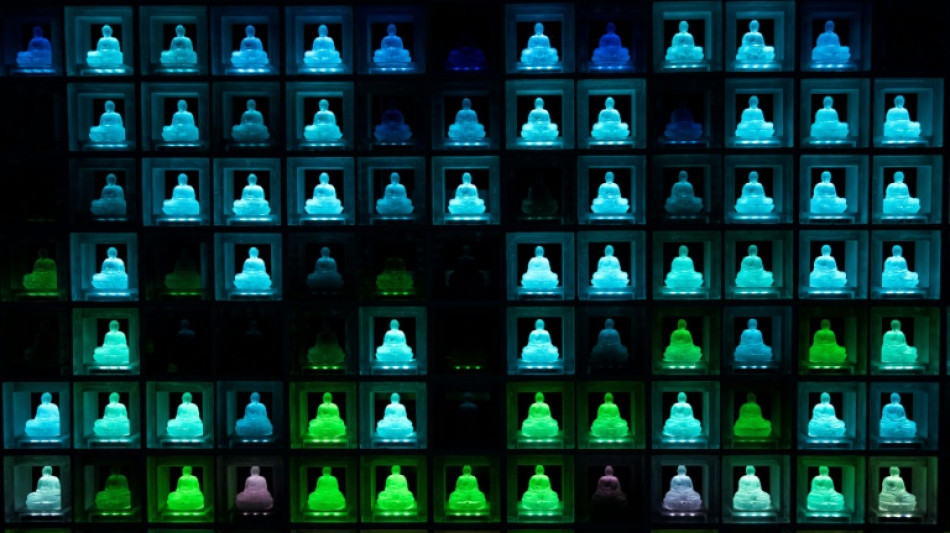
-
 Djokovic advances at US Open as Sabalenka, Alcaraz step up title bids
Djokovic advances at US Open as Sabalenka, Alcaraz step up title bids
-
Venice Film Festival opens with star power, and Gaza protesters
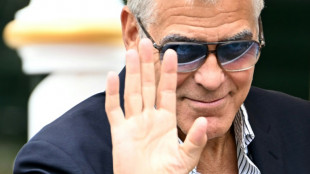
-
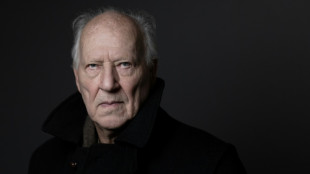 Globetrotting German director Herzog honoured at Venice festival
Globetrotting German director Herzog honoured at Venice festival
-
Djokovic fights off qualifier to make US Open third round

-
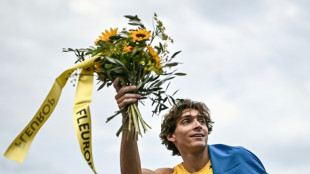 Duplantis, Olyslagers seal Diamond League final wins
Duplantis, Olyslagers seal Diamond League final wins
-
Israel demands UN-backed monitor retract Gaza famine report
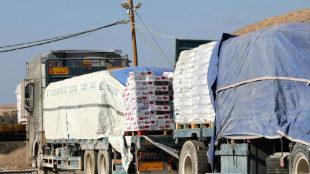
-
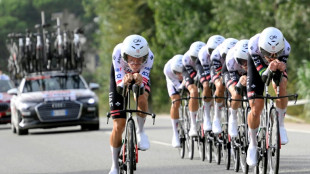 Vingegaard reclaims lead as UAE win Vuelta time trial
Vingegaard reclaims lead as UAE win Vuelta time trial
-
Shooter kills 2 children in Minneapolis church, 17 people injured
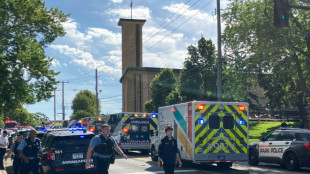
-
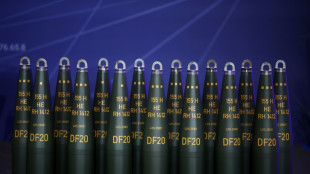 Defence giant Rheinmetall opens mega-plant as Europe rearms
Defence giant Rheinmetall opens mega-plant as Europe rearms
-
Van Gogh Museum 'could close' without more help from Dutch govt
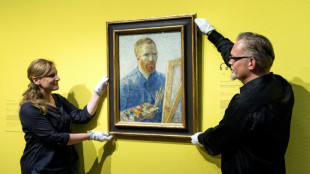
-
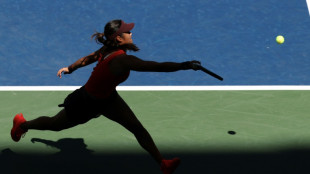 Indonesia's Tjen exits US Open as Raducanu moves on
Indonesia's Tjen exits US Open as Raducanu moves on
-
Trump administration takes control of Washington rail hub
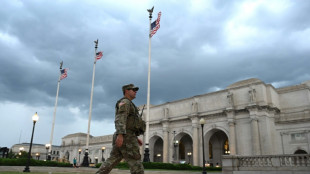
-
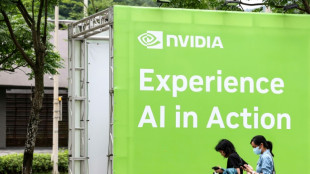 Stock markets waver ahead of Nvidia earnings
Stock markets waver ahead of Nvidia earnings
-
Conservationists call for more data to help protect pangolins

-
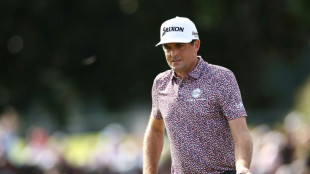 US Ryder Cup captain Bradley won't have playing role
US Ryder Cup captain Bradley won't have playing role
-
French star chef to 'step back' after domestic abuse complaint
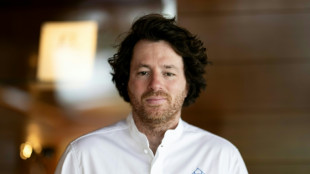
-
 Rudiger returns, Sane dropped for Germany World Cup qualifiers
Rudiger returns, Sane dropped for Germany World Cup qualifiers
-
S.Africa calls US welcome for white Afrikaners 'apartheid 2.0'
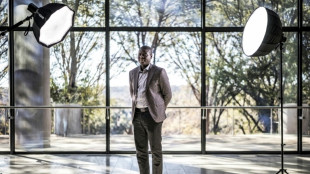
-
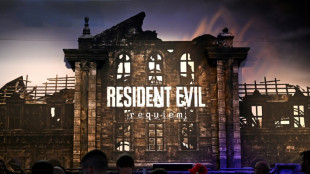 'Resident Evil' makers marvel at 'miracle' longevity
'Resident Evil' makers marvel at 'miracle' longevity
-
Denmark apologises for Greenland forced contraception
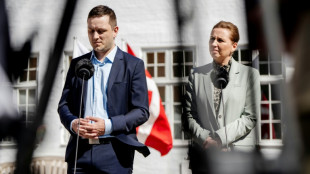
-
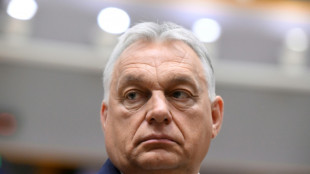 Hungary web users lap up footage of PM Orban's family estate
Hungary web users lap up footage of PM Orban's family estate
-
Alexander Isak selected by Sweden despite Newcastle standoff

-
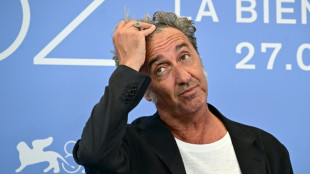 Italy's Sorrentino embraces doubt in euthanasia film at Venice
Italy's Sorrentino embraces doubt in euthanasia film at Venice
-
Trump urges criminal charges against George Soros, son

-
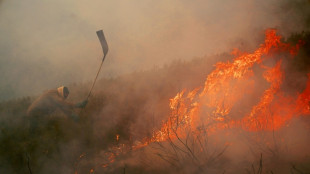 Wildfires pile pressure on Spanish PM
Wildfires pile pressure on Spanish PM
-
Stock markets mixed ahead of Nvidia earnings
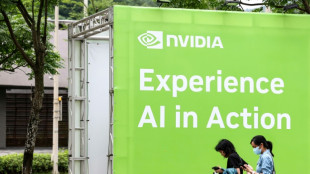
-
 Football's loss as hurdles sensation Tinch eyes Tokyo worlds
Football's loss as hurdles sensation Tinch eyes Tokyo worlds
-
Pakistan blows up dam embankment as it braces for flood surge
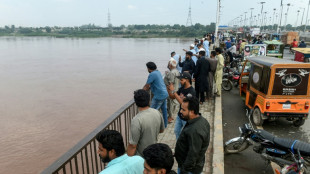
-
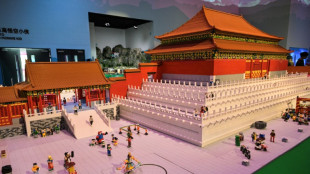 Lego posts record sales, sees market share growing further: CEO
Lego posts record sales, sees market share growing further: CEO
-
France overlook Ekitike for World Cup qualifiers, Akliouche called up

-
 Rain no obstacle, Lyles insists ahead of Diamond League finals
Rain no obstacle, Lyles insists ahead of Diamond League finals
-
Almodovar urges Spain cut ties with Israel over Gaza
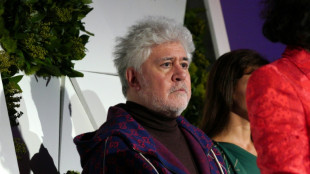
-
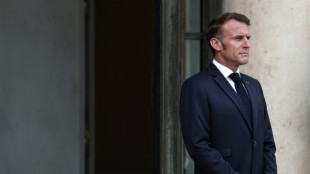 Macron gives 'full support' to embattled PM as crisis looms in France
Macron gives 'full support' to embattled PM as crisis looms in France
-
Stock markets diverge awaiting Nvidia earnings
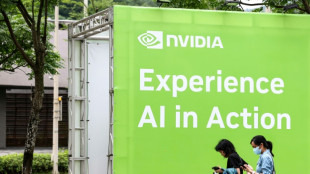
-
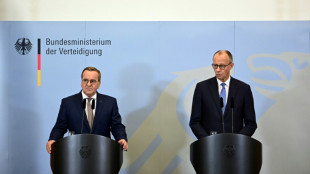 German cabinet agrees steps to boost army recruitment
German cabinet agrees steps to boost army recruitment
-
Denmark summons US diplomat over Greenland 'interference'
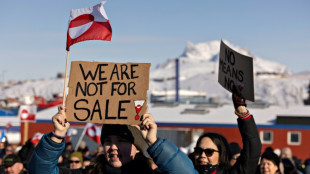
-
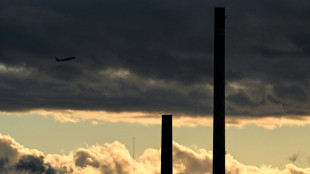 German factory outfitters warn of 'crisis' from US tariffs
German factory outfitters warn of 'crisis' from US tariffs
-
Israel ups pressure on Gaza City as Trump eyes post-war plan
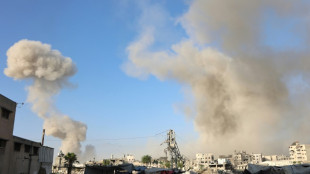
-
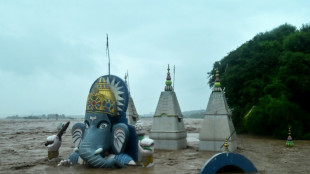 Floods, landslides kill at least 30 in India's Jammu region
Floods, landslides kill at least 30 in India's Jammu region
-
Former player comes out as bisexual in Australian Rules first

-
 Indian spin great Ashwin calls time on IPL career
Indian spin great Ashwin calls time on IPL career
-
India faces world football ban for second time in three years
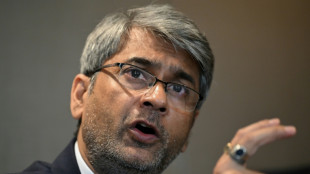
-
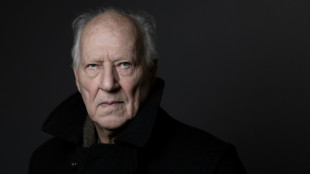 Globetrotter Herzog to get special Venice award
Globetrotter Herzog to get special Venice award
-
'Old things work': Argentines giving new life to e-waste
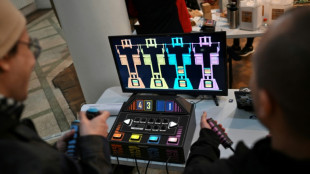
-
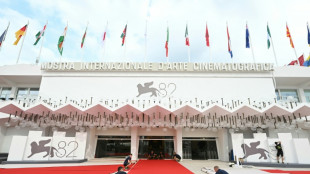 Showtime for Venice Film Festival, with monsters, aliens, Clooney and Roberts
Showtime for Venice Film Festival, with monsters, aliens, Clooney and Roberts
-
Thai woman jailed for 43 years for lese-majeste freed
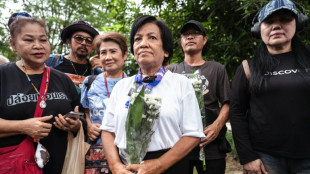
-
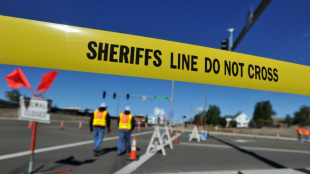 What is swatting? Shooting hoaxes target campuses across US
What is swatting? Shooting hoaxes target campuses across US
-
Row over Bosnia's Jewish treasure raising funds for Gaza
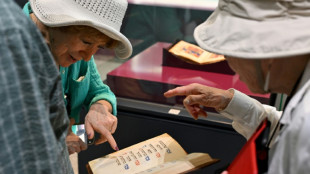
-
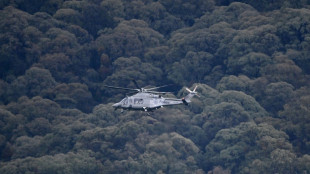 Police search Australian bush for gunman after two officers killed
Police search Australian bush for gunman after two officers killed
-
NZ rugby player who suffered multiple concussions dies aged 39
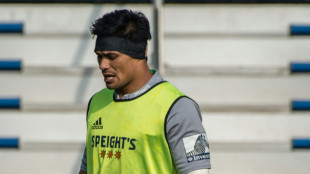

QR codes and cranes: Japan embraces modern cemeteries
Masayo Isurugi settles into a booth on the sixth floor of a sleek Tokyo building, scans an ID card and waits for an automated system to deliver her late husband's ashes.
More and more people in Japan are breaking with traditions on burial and mourning, swapping hometown graveyards for modern takes on cemeteries.
As the 60-year-old waits in one of ten mourning booths on the floor, cranes behind the walls move almost silently and retrieve the "zushi" box with the urn containing her late husband Go's ashes.
Chic wooden doors inside the booth quietly part like an elevator at a luxurious hotel and a gleaming, dark-stone altar emerges with Go's zushi box as its centrepiece, while a photo of him appears on a monitor.
"Initially, I thought maybe these facilities might feel cold and that I might prefer a traditional grave on soil," Isurugi told AFP.
"Now I feel it's better to have a place where I can visit whenever I want and offer prayers, rather than having a family grave that I could rarely visit."
Her family considered a traditional cemetery, but it was a two-hour train ride away. The Kuramae-ryoen facility is only brief bus ride from Isurugi's house and she can visit after work.
Traditionally in Japan, cremated remains are placed in family tombs used over many generations and tended by the family's eldest sons.
But Japan's disproportionately greying population makes for an imbalance between the number of new graves needing tending and the young people willing and able to do it.
Families are increasingly moving to urban areas far from ancestral graveyards, and many elderly don't have sons who can take on the traditional responsibility.
- 'A new style' -
Tomohiro Hirose, resident monk at the temple that supervises the Kuramae-ryoen facility, has a traditional cemetery with some 300 graves.
"But about half of the graves no longer have anyone in the family to look after them," he told AFP.
To address the problem, a crop of modern, indoor cemetery facilities have emerged, offering to store remains for a set period, often up to three decades.
The ashes are eventually transferred to collective memorials, but individual names or QR codes are engraved on plaques to provide some personalisation, and monks pledge to continue offering prayers for the souls of the departed.
Facing a busy boulevard in the Japanese capital, Kuramae-ryoen features warehouse-style industrial stacking racks that can store 7,000 zushi boxes, each of which can hold two urns or the bagged ashes of up to eight people.
Hirose decided to build the site after the temple's old building was badly damaged in the 2011 earthquake.
He felt the new building, which includes a temple, his living quarters, and the cemetery facility, would revitalise a site that dates back to 1608.
"This offers a new style. Many families find it easy to visit their graves," Hirose said.
The cemetery uses machinery developed by Daifuku, a firm that produces storage, transport and collection systems for factories and warehouses.
"Our company has built systems for around 60 (cemetery) facilities across the country," said Hidenobu Shinnaka, a senior official at Daifuku.
The first order came in the 1990s, and more recently there has been interest from other Asian markets too, he said.
- 'A warm-hearted manner' -
Modern cemetery sites are not only often more convenient, but cheaper.
An average spot costs around $7,100, roughly half a traditional gravesite, according to Kamakura Shinsho, a company that helps connect customers with cemeteries.
Other modern cemeteries are not big enough to need machinery, but incorporate other novel features.
Kokokuji temple, founded in Tokyo in 1630, has created a unique octagon-shaped space with walls of floor-to-ceiling displays of individual glass Buddha statuettes.
Each of the statues -- over 2,000 in all -- symbolises an individual whose ashes are stored there. When visitors scan an ID or enter a family name, the Buddha assigned to their loved one is illuminated.
The entire display can also be lit, and the system can produce various mosaic patterns with different statues illuminated in a variety of colours to produce a calming ambience in the dim sanctuary.
The display is meant to show that each of us is surrounded by many more, and all will join Buddha in the after-life, said resident monk Taijun Yajima, who built the Ruriden facility with artists and engineers.
He says mourning remains the same even in modern cemeteries.
"Children should look after the graves and the souls of parents... But in some people's reality, it is simply not possible," he said.
"I thought about how those people can be laid to rest in a warm-hearted manner, and this is the answer."
K.Thomson--BTB

